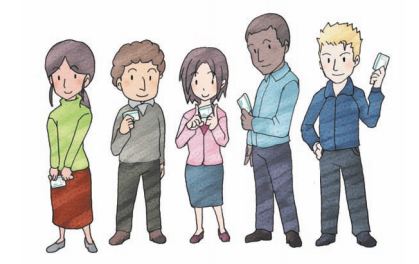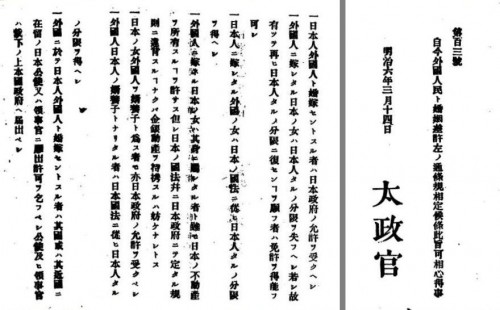I have procrastinated for months in getting a new passport, even after my old one expired at the end of June, because the cover came off and it therefore counts as too damaged for a postal renewal. So, I finally found my birth certificate and biked over from my nice new (as of just over a week ago) residence in the Bedford-Stuyvesant neighborhood of Brooklyn down to the very lovely main Brooklyn Public Library at Grand Army Plaza in Prospect Park, where the most convenient all-day-long passport application center is located.

Upon arrival, I realize I forgot my printout of the application form at home, but no matter; I can easily fill it out again. After all, it would be silly to go all the way back home for my neatly printed printout of the filled-out-online PDF version of the form. And so I fill out all the forms again, whereupon the agent checks my documentation, She is at first suspicious that my birth certificate is merely a photocopy, and therefore invalid, but I show her—no ma’am, you can see that there is a faint, but genuine raised seal upon the surface—and she acquiesces.
But then a curveball. I am told that because my state ID1 is less than 6 months old, the State Department does not have the updated records and it is therefore not a complete and valid form of identification, necessitating an alternate and more comprehensive approach to the application process. My options are laid out: I need to either go home and find the expired ID card or make an affidavit application.
What is an affidavit passport application you ask? I have heard of affidavit voting, you may think. All you have to do is fill out one extra form attesting that you are not a lying scoundrel, and they will put your vote in the pile that they will look at if they get bored. Surely an affidavit passport application is no more of a burden? In fact, it is.For you see, it is not the applicant who completes the affidavit, but the witness attesting to the applicant’s identity. That is, I would need to bring a relative or long-standing acquaintance with me to the application office, this person would need to present his or her identification, and sign an affidavit swearing to be a relative or long-standing acquaintance of mine, whereupon my application would be accepted.
Having no desire to subject another individual to such a dreary procedure, I cycle back home, stopping only shop at the Duane Reade for sundries I have been delinquent in purchasing, and being a frantic search for the expired card. Having just moved over a week ago I expected the search to be fruitless, but luckily I discovered the card in a matter of minutes, on a table, unexpectedly laying underneath a hat.
And so, the story ends with far more annoyance than drama, yet another example of the seemingly endless procedures to which all we citizens are subjected by the splendiferously tentacled bureaucratic state, and an anecdote which I hope will prove to be of some small amount of education to the reader.
- Non-driver’s license state ID. Yes, that is something I never did at all. [↩]



 Marmot has a post titled “
Marmot has a post titled “